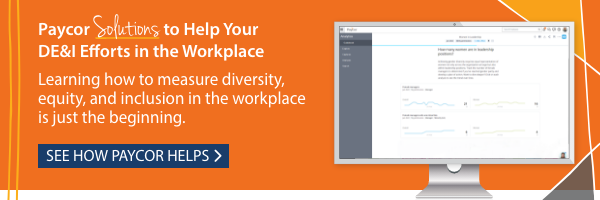We live in a global economy. Thanks to modern technology, even national companies market to international customers. Within organizations, remote work makes outsourcing easier than ever – we no longer expect our colleagues to share a time zone. Even within small geographical areas, cultural diversity is on the rise. It’s more important than ever for businesses, especially HR decision-makers, to cultivate cultural intelligence.
What is Cultural Intelligence?
Cultural intelligence, or CQ, is empathy on steroids. In the tradition of IQ (Intelligence Quotient) and EQ (Emotional Quotient), it describes a person’s ability to understand and connect with different cultures. To quote the Harvard Business Review, “cultural intelligence is related to emotional intelligence, but it picks up where emotional intelligence leaves off.”
CQ is a perspective, not a collection of facts. Culturally intelligent people approach each other with curiosity, actively seeking to understand differences. That process takes real work – the interpersonal work of building relationships, and the inner work of noticing implicit bias and working through it to find common ground. When you strive to be culturally intelligent, empathy becomes a basic part of your humanity.
Why Cultural Intelligence Matters
We’re living through a major cultural shift. The field of DE&I is growing more relevant every day, especially for HR. As Gen Z enters the scene, businesses have no choice but to embrace true diversity – of race, age, gender, religion, ability, and more. As the most diverse generation in the workforce, they don’t just expect employers to care about DE&I; they demand it. In one study, 56% said they would refuse a job offer if the company lacked diverse leadership (World Economic Forum).
Our standards for cultural intelligence are going up. I see companies working hard to develop DE&I strategies that attract, retain, and support workers of all ages. More and more businesses are developing collaborative teams to enhance employee engagement and workplace culture. That’s a huge step forward. Increasing CQ on both individual and collective levels isn’t just good for HR, it’s also good for business.
CQ Drives Innovation
In today’s economic and cultural climate, businesses have to focus on innovation. For one thing, it’s the only way to keep up with developments like AI. And for HR, it’s the best way to attract and retain new talent.
Gen Z is the first generation younger than the internet. They take social media for granted, and since 2020, distance is no object to face-to-face friendships. Unlike their predecessors, they grew up in a truly global community, and are aware of cultural differences. If we’re not working to be culturally intelligent, we risk alienating new talent and missing out on their passion for innovation.
Use CQ to Connect with Diverse Partners
CQ starts as a felt sense of empathy, but it quickly creates a behavioral shift. Consistent, intentional thought about different cultures automatically makes us more aware of issues other communities face. When we notice the gaps, we naturally want to address them.
This desire fuels partnerships and widespread economic growth. Over time, culturally intelligent businesses work hard to increase the diversity of their suppliers, vendors, and service providers. I think of this as a combination of two of Paycor’s Guiding Principles: “Compete to Win” and “Do the Right Thing.” Businesses can stay competitive and support each other’s growth at the same time.
How CQ Helps Retain Top Talent
Retention is difficult for any business in today’s labor market, even if you’ve already mastered CQ. Between the national talent shortage, the wave of Baby Boomer retirements, and Gen Z’s interest in working for themselves, it’s hard to find qualified candidates. That makes cultural intelligence more important than ever.
Minorities make up 23.5% of the U.S. workforce, according to the latest data from the Bureau of Labor Statistics. There’s no big, surprising secret to attracting and retaining minority candidates. Businesses need to develop DE&I strategies, foster a sense of belonging, and invest in talent development. Or, to put it simply: build trust with everyone on your team. When people feel seen and supported, they’re far more likely to stay.
Cultural Intelligence Broadens Your Reach
A successful DE&I strategy is just that – a strategy. It’s not an initiative, a program, or an effort. It’s embedded within your company-wide approach to business, corporate culture, community partnerships, and more. To be effective, it has to be pervasive. The same is true of CQ. It’s a core perspective, not a checkbox for HR to tick off. When you position CQ as a company value, you empower your team to navigate cultural customs, norms, and systems around the world.
Like any other part of your HR strategy, CQ depends on tangible, measurable actions. Here’s one example: Paycor is expanding in several dimensions. Our team now includes people outside the U.S., and our DE&I strategy has grown along with it. We just rolled out an interfaith company calendar to foster communication and a sense of belonging among associates around the world.
It’s all too easy to get entrenched in our own nation’s customs, and this simple document makes a huge difference. For example, when most of our U.S. associates are out for Thanksgiving, their colleagues in Serbia will have a regular workday. Knowing that in advance lets the team plan better workflows for shared projects. It also gives them a window into each other’s lives and cultures.
How to Develop Company-Wide Cultural Intelligence
At Paycor, cultural intelligence is a company-wide priority. In addition to the interfaith calendar and cultural resource guide, we nominate associates around the world to be regional culture champions, support Employee Resource Groups and mentoring programs, and more.
If you’re ready to cultivate CQ within your organization, you can start with these concrete steps.
Offer On-The-Job Training
In my experience, the most effective DE&I strategies include ongoing learning and development for all employees and stakeholders. Depending on your starting point, that could mean almost anything. Consider:
- Researching your own personal or corporate culture
- Identifying biases using Harvard University’s Project Implicit Association Tests
- Hosting speakers with expertise in the history of specific cultures, such as museum curators, professors, or researchers
- Forming book clubs for team members to learn about other cultural experiences
- Learning a new language as a team
- Offering online or written resources that employees can explore at their own pace
At Paycor we often facilitate workshops and host speakers with diverse voices. Associates can also use Paycor Paths to take courses that promote behavioral change.
Foster an Open Dialogue
Amplifying marginalized voices is central to any DE&I strategy, but that’s just the starting point. CQ requires something more. You should also foster dialogue between people of different backgrounds, helping them practice empathy and curiosity. You could host “lunch and learn” sessions or use team meetings to discuss the cultural significance of your work. Most importantly, make sure these opportunities take place frequently. Cross-cultural collaboration should be an ongoing experience, not a one-off event.
Implement Employee Feedback
Listen to understand, not just to respond. HR should proactively seek out information about company culture, running regular employee surveys to learn about the team’s evolving needs. Then, implement their feedback and announce what changes you’ve made. Leading by example sets the tone for an inclusive culture. Requesting feedback and then failing to make changes, on the other hand, erodes trust and engagement.
How Paycor Helps
When you become a Paycor customer, you get access to so much more than our HR software.
You can also tap into resources that help businesses to attract, retain, and include employees. Recruiting tools like Paycor Smart Sourcing expand your talent pool and interrupt implicit bias. Paycor Paths, a customizable learning tool for leaders, helps managers hone their skills and work toward DE&I goals. We also offer customer-exclusive webinars and support, empowering clients to design and implement their ideal HR strategy.











